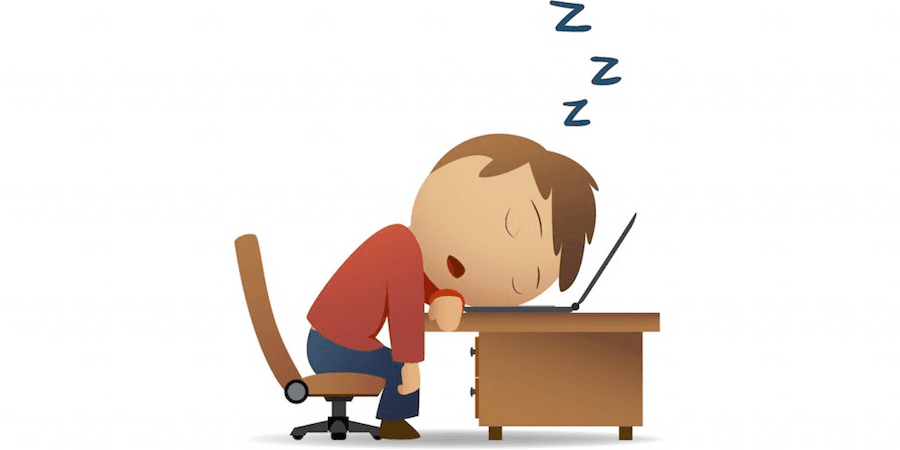Mental Fatigue: What to Do When Your Brain Is Too Tired to Think Straight
Curated from: doist.com
Ideas, facts & insights covering these topics:
8 ideas
·34.9K reads
68
Explore the World's Best Ideas
Join today and uncover 100+ curated journeys from 50+ topics. Unlock access to our mobile app with extensive features.
Describing mental fatigue
It is the feeling that your brain just won't function properly. People will describe it as brain fog. You can't concentrate, and simple tasks take too long. You find that the things you could do in a short time in the morning now take forever.
Mental fatigue can be acute or chronic. Acute fatigue can be relieved after a short period of rest. If allowed to continue, it can become chronic fatigue and eventually lead to burnout.
1.36K
6.43K reads
Causes of mental fatigue
Contributing factors to mental fatigue are poor nutrition, lack of sleep, hormonal imbalances, or cognitive overload. Cognitive overload can take the following forms:
- When you focus on a single task for an extended period of time.
- When you spread your attention across too many things.
- Worrying about tasks. It is as mentally taxing as doing the task.
1.41K
5.07K reads
Give your brain high-quality fuel
Your brain is fuelled with the same food as your muscles. What you eat has an enormous impact on your cognitive functioning.
- Cut down on refined sugars as it decreases alertness. Aim for sustained energy levels throughout the day.
- Plan your meals in advance. If you wait until you're hungry, you're already low on energy and willpower and will reach for a quick energy boost in the form of sugar.
- Don't skip breakfast. Without it, you may likely crash in the middle of the morning. Eat more eggs, yogurt, and oatmeal to sustain your energy levels until lunch.
- Snack mid-morning and mid-afternoon to give your body consistent fuel.
- Stay hydrated with water. Mild hydration can negatively impact cognitive performance.
- Listen to your body to figure out what makes you feel best. The same nutrition advice won't work for everyone.
1.47K
4.05K reads
Sleep is the most productive thing you do all day
The quality of life decreases when we don't get enough sleep. To improve your quality of sleep:
- Keep it cool, dark, and quiet. A temperature between 65 and 72 degrees Fahrenheit (18-22 degrees celsius) is recommended.
- No screens before bed. The blue light of screens interferes with your body clock.
- Have a calming bedtime routine. Doing the same winding down routine before bed prepares your body and mind for the night.
- Keep a consistent wake-up time. Your natural body clock is more aligned with the time you wake up than the time you fall asleep.
- Skip coffee after noon. Caffeine has a half-life of 4 - 6 hours.
1.37K
3.78K reads
Work with your ultradian rhythms
Your body has natural ebbs and flows in energy throughout the day. Those are your ultradian rhythms. They are driven by your hormone levels, metabolic processes, and cardiovascular functioning and affect your energy, mood, and cognitive functioning. They are unique to you.
These rhythms take the form of 90-minute peaks of energy followed by a 20-minute dip that repeats throughout the day. As the day progresses, the peaks get lower and lower. Plan your day to work with your ultradian rhythms. Take a week to note your energy levels throughout the day. Notice when your energy levels are highest and lowest.
1.38K
3.62K reads
Take strategic breaks
Your energy levels will naturally decrease throughout the day, but you can recharge your batteries by taking breaks.
- High performers work for fifty-two minutes, then take a seventeen-minute break.
- Taking a five-minute walk every hour boost energy levels and sharpens focus, one study finds.
- Social breaks are more effective at reducing stress and improving mood than cognitive breaks or nutrition breaks.
- People who take short walks outdoors return with better moods.
- Tech-free breaks increase vigor and reduce emotional exhaustion.
- A 20-40 minute power nap in the afternoon has been shown to improve alertness and mood.
1.55K
4.35K reads
Ways to lighten your mental load
- Only touch things once. As soon as you reach for something, whether it's mail or a project that needs to be filed, do it immediately.
- Set aside 2 - 3 specific time-blocks to process your emails.
- Focus on one thing at a time.
- Identify which decisions you can do with little thinking. Eat the same breakfast; keep the same exercise routine.
- Learn to say no. More responsibilities will increase the mental load on your brain.
1.44K
4K reads
Disconnect at the end of the workday
It is helpful to have a work shutdown ritual - a consistent series of tasks that tell your brain that it can stop thinking about work for the day:
- Update and organize your to-do list. Your brain can stop thinking about the tasks knowing that you won't forget about them.
- Schedule a commitment at the end of the day to put you out of work mode - a dinner with friends or a group fitness class.
- Turn off all notifications from work apps on your phone or delete work apps from your phone.
1.32K
3.59K reads
IDEAS CURATED BY
A good night sleep and a helathy morning routine is what I work on constantly.
Katherine L.'s ideas are part of this journey:
Learn more about personaldevelopment with this collection
How to apply new knowledge in everyday life
Why continuous learning is important
How to find and evaluate sources of knowledge
Related collections
Similar ideas
5 ideas
The Science of Deep Sleep - Mindful
mindful.org
9 ideas
9 Natural Ways to Boost Your Energy Levels
healthline.com
Read & Learn
20x Faster
without
deepstash
with
deepstash
with
deepstash
Personalized microlearning
—
100+ Learning Journeys
—
Access to 200,000+ ideas
—
Access to the mobile app
—
Unlimited idea saving
—
—
Unlimited history
—
—
Unlimited listening to ideas
—
—
Downloading & offline access
—
—
Supercharge your mind with one idea per day
Enter your email and spend 1 minute every day to learn something new.
I agree to receive email updates

